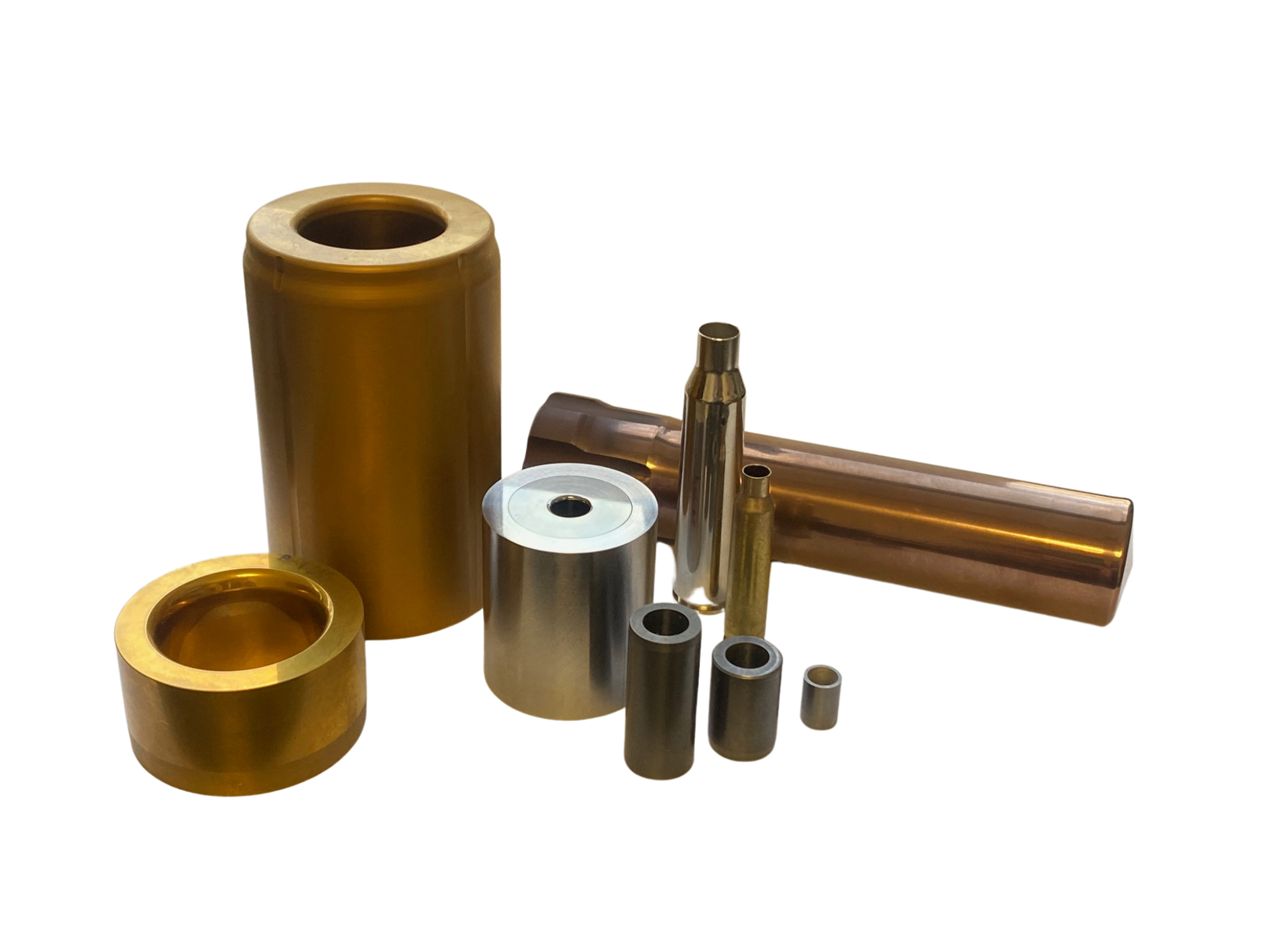Few materials rival the strength and resilience of carbide in the demanding world of industrial manufacturing. This extraordinary compound, formed from carbon and a metal, boasts remarkable hardness and wear resistance, making it indispensable across various sectors.
In particular, the role of carbide dies in metal-forming processes is crucial. These specialized tools, crafted from carbide’s robust structure, empower manufacturers to create intricate shapes and maintain tight tolerances. Let’s explore the fascinating world of carbide and uncover its impact on modern industry.
Types of Carbide
Carbide’s versatility lies in its ability to combine with different elements, creating materials with diverse properties. Let’s look into some of the prevalent carbide types and their respective characteristics:
Tungsten Carbide
The most widely used carbide in cutting tools, tungsten carbide, combines exceptional wear resistance and toughness. Its strength and ability to withstand high temperatures make it suitable for various cutting tools, from drills and end mills to inserts.
Titanium Carbide
Renowned for its toughness, titanium carbide exhibits high wear and thermal shock resistance. These characteristics make it an ideal choice for cutting tools used on abrasive materials like cast iron and stainless steel.
Tantalum Carbide
A rare yet highly valuable carbide, tantalum carbide stands out due to its exceptional hardness and wear resistance. Its ability to handle high temperatures makes it perfect for cutting tools with demanding materials such as titanium and nickel alloys.
Chromium Carbide
This tough carbide boasts high resistance to both wear and corrosion. Chromium carbide is common in cutting tools that encounter abrasive and corrosive materials like steel and cast iron.
Vanadium Carbide
Known for its toughness and wear resistance, vanadium carbide, similar to tantalum carbide, is used in cutting tools operating at high temperatures. It excels at machining materials like titanium and nickel alloys.
Silicon Carbide
Characterized by extreme hardness and brittleness, silicon carbide also exhibits high wear resistance and thermal conductivity. Its unique properties make it suitable for cutting tools with non-ferrous materials like aluminum and copper alloys.
Each type of carbide possesses distinct properties, making them suitable for specific applications. Understanding these differences allows for informed decisions when selecting the optimal carbide for any given task. Next, we’ll explore the numerous ways carbide enhances various industrial processes.
Applications of Carbide
Carbide’s impressive properties translate into a wide array of industrial applications, making it a cornerstone of modern manufacturing:
Cutting and Shaping
From drills, end mills, and saw blades to intricate carbide dies and draw dies used in metal forming, carbide’s hardness and wear resistance enables precise cutting and shaping of various materials.
Wear Resistance
Components subject to constant friction, such as bearings, seals, and valves, benefit from carbide’s durability, reducing maintenance and replacement costs.
Precision Carbide Grinding
Carbide grinders, equipped with specialized grinding wheels, harness carbide’s hardness to achieve exceptional precision in grinding applications, making them indispensable in industries demanding high accuracy.
Benefits of Carbide
Carbide’s exceptional properties have made it a staple in many industries. Here are some of its many benefits:
- Extended Tool Life: Carbide’s exceptional hardness and wear resistance translate into significantly longer tool life compared to traditional materials. This durability reduces downtime for tool changes and lowers maintenance costs.
- Improved Performance: Carbide tools can operate at higher cutting speeds, leading to increased productivity and faster turnaround times.
- Enhanced Precision: In applications like carbide dies and draw dies, carbide’s ability to maintain its shape and dimensions under pressure ensures consistent and precise results.
- Cost-Effectiveness: While carbide tools may have a higher upfront cost, their extended lifespan and superior performance result in long-term cost savings.
- Superior Surface Finish: Carbide cutting tools and carbide grinders produce smoother surface finishes, reducing the need for additional finishing operations.
Key Takeaways
Carbide’s exceptional hardness, wear resistance, and versatility make it indispensable in modern manufacturing. From cutting tools to carbide and draw dies, it drives precision and efficiency, shaping industries and fueling innovation.
Ready to harness the power of carbide for your specific needs? Raven Carbide is here to guide you. Contact us to discover how carbide dies can help boost your operations and unlock new possibilities today!



